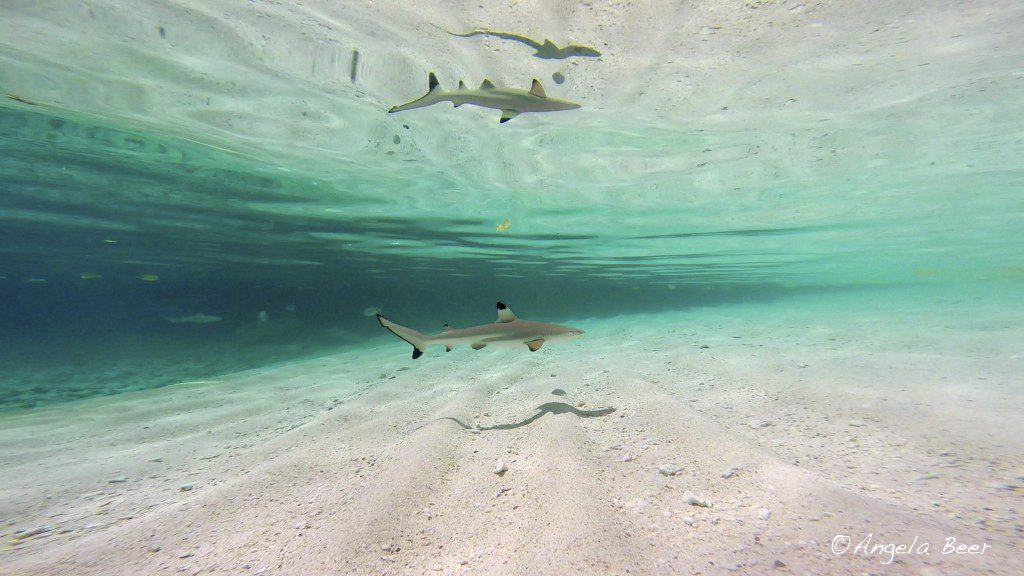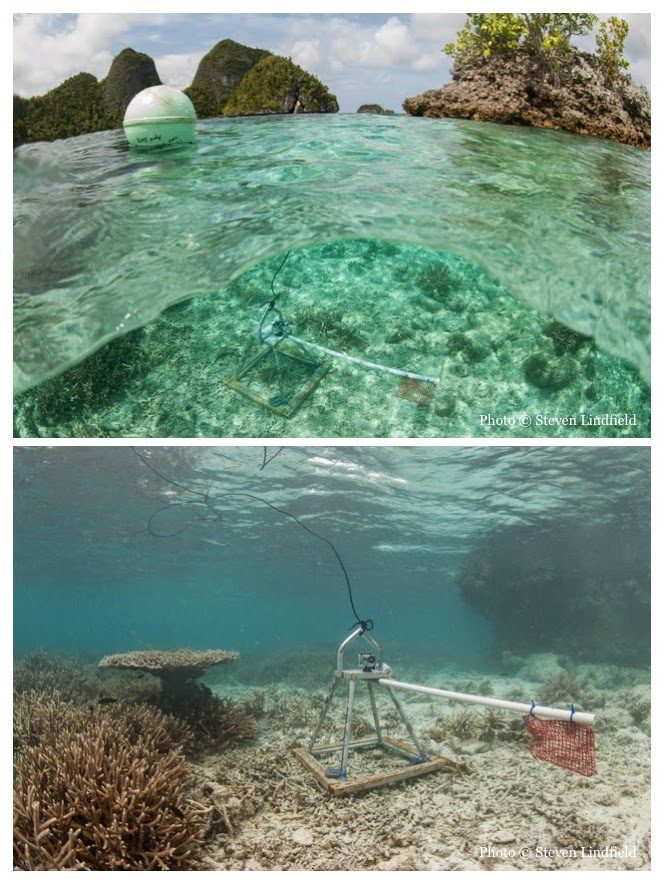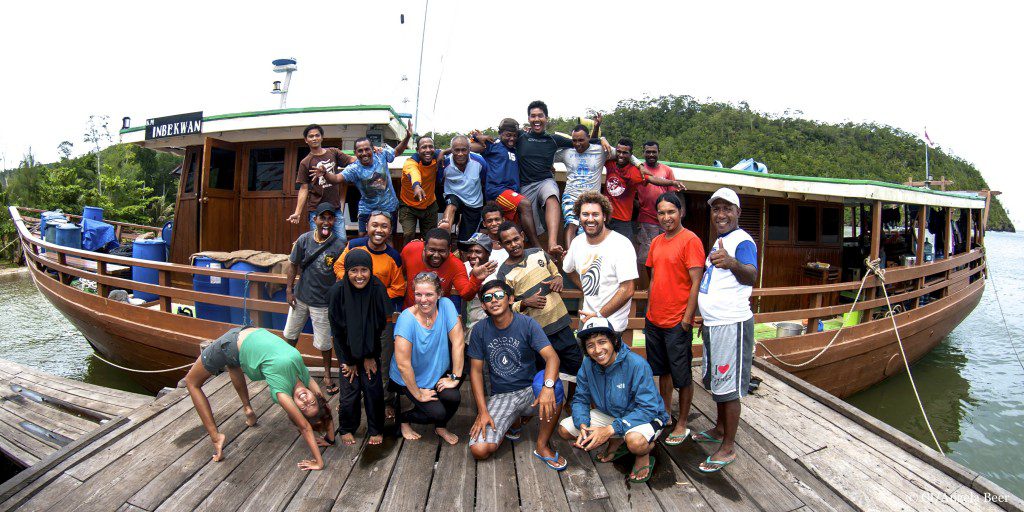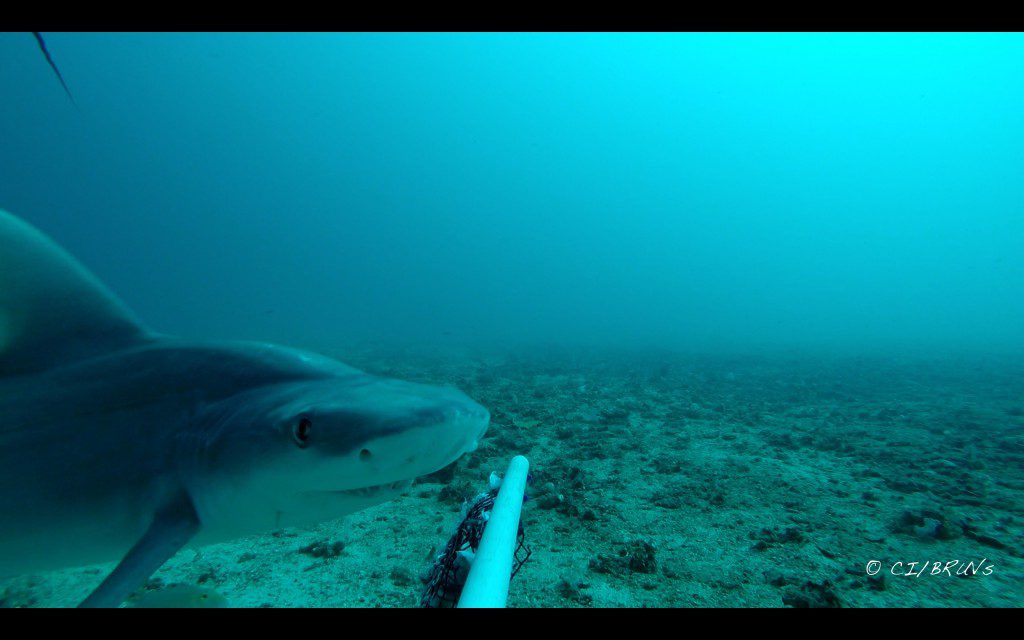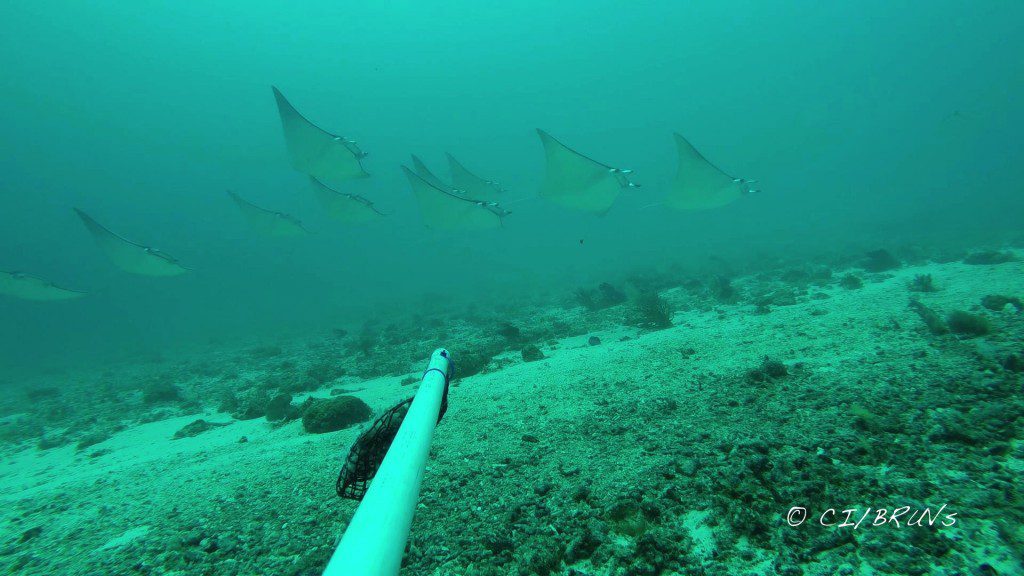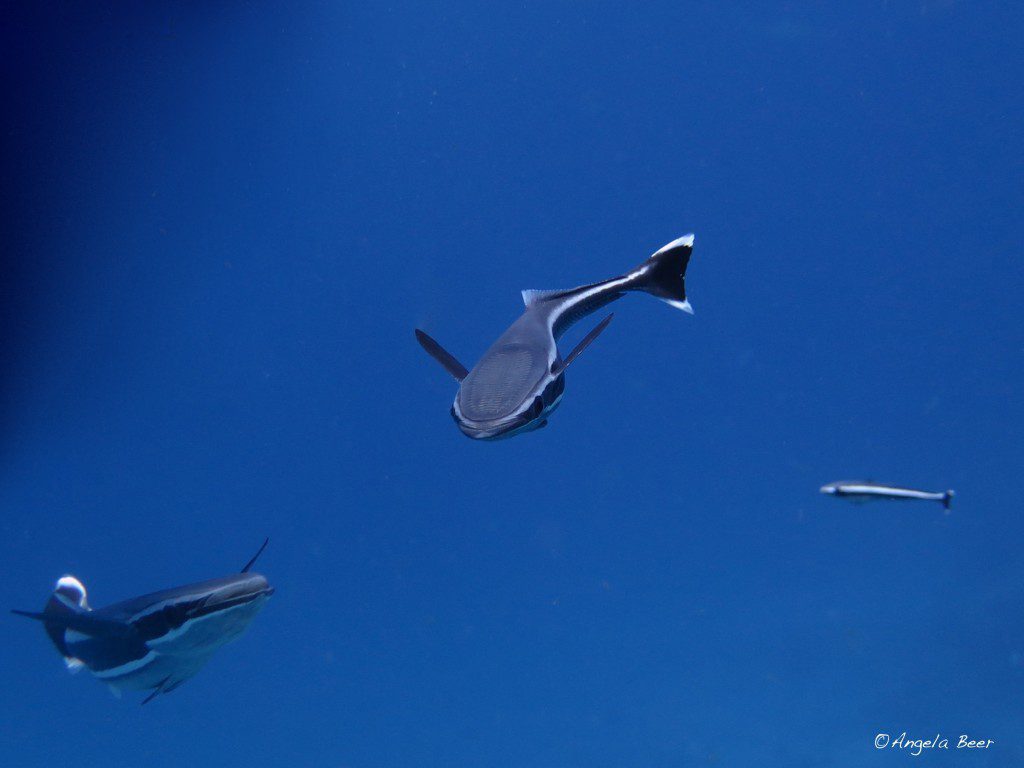Marine Life & Conservation
BRUVs Shark Research in Raja Ampat
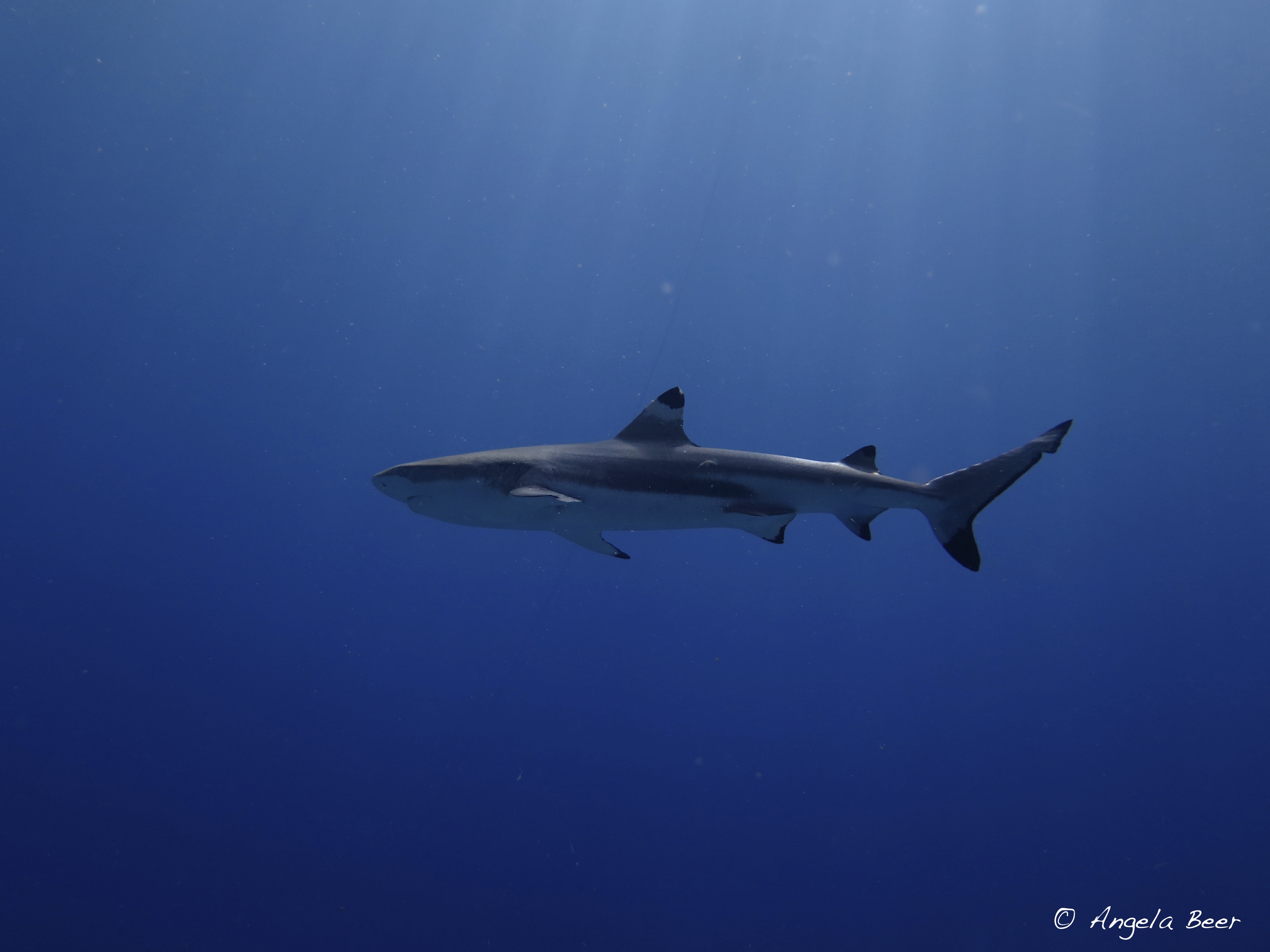
Conservation International (CI)’s Mark Erdmann previously blogged about the Bird’s Head Seascape surpassing the milestone of 1750 reef fish species recorded, leaving no doubt as to where the global heart of marine biodiversity lies. The remote tropical islands of Raja Ampat, West Papua, are the epicenter of this marine richness, and may be a haven for shark diversity in particular – That’s what we’re in the process of finding out with Conservation International’s science and monitoring team, through an innovative shark research program.
Sharks are ancient animals and are important for healthy oceans, yet they are threatened with extinction. The people of Raja Ampat traditionally live harmoniously with nature, but outside threats are encroaching. Guardians of their natural heritage, local people, supported by international partner organizations CI and TNC, set up Marine Protected Areas (MPAs) for conservation (Watch a tribute to the “Guardians of Raja Ampat”). Additionally, in 2012 the local government declared the entire region an official “Shark Sanctuary” through a law that protects all sharks and rays, as well as other charismatic key species, such as dugong, sea turtles and endemic species. This was a positive step in recognizing the benefits of healthy elasmobranch (cartilaginous fish, such as sharks and rays) populations for local communities, both economically and ecologically.
These management initiatives, combined with effective patrol & enforcement, and understanding shark populations, should help locals manage MPAs to protect these charismatic species, thus helping improve food security and alternative livelihoods through tourism. The mantanomics are sound, and the revenue that could be brought in by shark tourism is probably comparable.
We are working to complete the final stage of a study to assess the current status of shark populations in the Raja Ampat archipelago – and will be making a second bid on collecting the data for the final piece of the puzzle, working together with Misool Eco Resort in the spring!
Research uses BRUVs (Baited Remote Underwater Video) to analyze shark diversity and relative abundance between no-take and fished sites over depth gradients. This study provides baseline data to enable assessment of the impact of management efforts related to Patrol & Enforcement, and Outreach & Education, of both the Marine Protected Areas (MPAs) and the Shark Sanctuary as a whole throughout Raja Ampat.
The first field data collection trip was a great collaboration where we learned a lot and ultimately went exceedingly well. Despite many challenges, including rough weather and wild sea conditions, the disciplined, hard-working team completed monitoring at Wayag MPA, Dampier MPA and the Fam Islands. GoPro cameras were submerged in shallow, medium and deep waters at a minimum distance of 500m from one another, and left to record for one hour. In 15 days of surveying we successfully completed 470 camera drops – two more trips got the tally up to almost 1000, now including Ayau, Kofiau and Mayalibit Bay MPAs as well!
Although completing data analysis is taking longer than anticipated, preliminary reviews suggest that approximately 50% of the videos captured contain images of sharks. At least nine different species of shark were recorded, including the common black- and white-tip and grey reef sharks, tawny nurse shark, banded bamboo shark, and an exciting first for Raja Ampat (and thus a +1 for the Raja Ampat species count), Hemipristis elongata, more commonly known as the “Snaggle-toothed shark”.
In addition to the sharks, many other interesting and unexpected appearances on camera included mantas, mobulas, eagle rays, golden cow-nosed rays, turtles, spanner crabs and moray eels. We were disappointed to catch many remora without hosts on camera… and have come up with a new slogan for a “Shark Savers”campaign: Save the Sharks – the ramoras are getting lonely!
Onboard CI’s research vessel, the team also hosted the well-known TV presenter Riyanni Djangkaru and her Trans7 TV crew for two days, while they filmed our activities. Riyanni is actively supporting the nation-wide Save Sharks campaign, and we hope her effort to document the BRUV project in Raja Ampat will raise awareness throughout the country and be a positive force in the larger-scale shark conservation efforts.
Indonesia has the largest shark fishery in the world and is thus an important place to focus shark research and conservation efforts. The more we know about these cool, ancient animals, the better we can protect them. We hope that data from these surveys will help the campaign to protect sharks on a national level – much the same way we were able to convince the government to pass national legislation to protect manta rays a year ago.
Say CHEESE, Sharkies!!!
To view the project video click here: VIDEO
This project was a joint initiative between Conservation International (CI), the Raja Ampat government, RRU (Royal Roads University) and NSERC (The Canadian National Science and Engineering Research Council), in collaboration with Raja Ampat Research and Conservation Centre, Misool Eco Resort and Baseftin Foundation, local communities and with support from Walton Family Foundation, Allchin family’s Sunbridge Foundation, the Friend family’s Nicole Friend Memorial Trust. For a complete list see credits at end of video.
Marine Life & Conservation
Leading UK-based shark conservation charity, the Shark Trust, is delighted to announce tour operator Diverse Travel as a Corporate Patron

 Corporate Patrons provide a valuable boost to the work of The Shark Trust. The Trust team works globally to safeguard the future of sharks, and their close cousins, the skates and rays, engaging with a global network of scientists, policymakers, conservation professionals, businesses and supporters to further shark conservation.
Corporate Patrons provide a valuable boost to the work of The Shark Trust. The Trust team works globally to safeguard the future of sharks, and their close cousins, the skates and rays, engaging with a global network of scientists, policymakers, conservation professionals, businesses and supporters to further shark conservation.
Specialist tour operator Diverse Travel has operated since 2014 and is committed to offering its guests high quality, sustainable scuba diving holidays worldwide. Working together with the Shark Trust will enable both organisations to widen engagement and encourage divers and snorkellers to actively get involved in shark conservation.
“Sharks are truly at the heart of every diver and at Diverse Travel, we absolutely share that passion. There is nothing like seeing a shark in the wild – it’s a moment that stays with you forever!” says Holly Bredin, Sales & Marketing Manager, Diverse Travel.
“We’re delighted to celebrate our 10th year of business by becoming a Corporate Patron of the Shark Trust. This is an exciting partnership for Diverse and our guests. We will be donating on behalf of every person who books a holiday with us to contribute towards their vital shark conservation initiatives around the world. We will also be working together with the Trust to inspire divers, snorkellers and other travellers to take an active role – at home and abroad – in citizen science projects and other activities.”
Paul Cox, CEO of The Shark Trust, said:
“It’s an exciting partnership and we’re thrilled to be working with Diverse Travel to enable more divers and travellers to get involved with sharks and shark conservation. Sharks face considerable conservation challenges but, through collaboration and collective action, we can secure a brighter future for sharks and their ocean home. This new partnership takes us one more valuable step towards that goal.”
For more information about the Shark Trust visit their website here.
For more about Diverse Travel click here.
Marine Life & Conservation
Shark Trust Asks Divers to help with Shark Sightings this Global Citizen Science Month

 Whether you are stuck for ideas of what to do with the kids or are off on the dive trip of your dreams. You can get involved in Citizen Science Month and help the Shark Trust by providing vital data about sharks are rays both close to home and further afield.
Whether you are stuck for ideas of what to do with the kids or are off on the dive trip of your dreams. You can get involved in Citizen Science Month and help the Shark Trust by providing vital data about sharks are rays both close to home and further afield.
In addition to reporting the sharks and rays you see on your dives, the eggcases you find on the beach, the Shark Trust is looking for some specific data from divers who are asked to report any Oceanic Whitetip and Basking Sharks.
Oceanic Whitetip Sharks
The Shark Trust are looking specifically for Oceanic Whitetip Shark sightings over the coming weeks and months. So, if you are diving anywhere in the world, please report your sightings via the website or app.
Website: https://recording.sharktrust.org/
App: Search The Shark Trust in your app store
The Oceanic Whitetip. Known for their incredibly long dorsal and pectoral fins, this species was once the most abundant oceanic-pelagic species of shark on the planet.
Large and stocky, they are grey or brown above, and white below and famous for their huge rounded first dorsal fin and paddle-like pectoral fins. The fins also highly prized within the shark fin trade. Whilst they are mostly solitary, Oceanic Whitetips do occasionally hunt in groups.
An inquisitive species, they were easy prey for fisheries. Combined with their low reproductive rate, they were inevitably at high risk of population depletion. And declines of up to 99% have been reported in certain sea areas. They are listed as Critically Endangered on the IUCN Redlist (2019).
Conservation efforts to discourage further declines include listing on CITES Appendix II and CMS Appendix I. They’re also the only species prohibited from take by all the Tuna RFMOs (Regional Fisheries Management Organisations). However, these measures do not mean that Oceanic Whitetips are not still caught – whether targeted or as bycatch – in some parts of the world. With populations declining at such a high rate, effective implementation of management measures is essential to ensure that the species can recover.
If you are lucky enough to get an image of an Oceanic Whitetip and you record your sighting on the Shark Trust app or website YOU CAN WIN! All images submitted with sightings, that also give consent to use in conservation messaging, will be in with a chance to win an Oceanic Whitetip T-shirt and mug. The competition will run until the end of “Shark Month” in July – so keep those sightings (and images) coming in.
Basking Sharks
Basking Shark (Cetorhinus maximus) season is upon us, and the Shark Trust is asking everyone to keep an eye out for these majestic giants over the summer months. If you see any, you can record your sighting to the Basking Shark Sightings database.
Each year, these mighty fish return to British waters to feed on plankton. You may see one, (or a few if you’re really lucky) from around April-October. They can be seen feeding at the surface of the water, where they look like they’re basking in the sun. Thus, their name!
Sighting hotspots around the British Isles include southwest England, Isle of Man, north coast of Ireland, and western Scotland. The Sea of the Hebrides is the most prolific sightings area in Scotland, but they have been spotted all around the coast and have even ventured into some of the sea lochs. The Shark Trust has received thousands of sightings since the Basking Shark project began, but more data is needed to truly understand what is going on with population numbers and distribution. You can help by recording your sightings this summer.
Great Eggcase Hunt
The Shark Trust has an Easter Egg Hunt with a difference for you to try. Take part in the Great Eggcase Hunt and get involved with a big citizen science project that helps shark, ray and skate conservation. And it’s an enjoyable activity for all the family.
The Shark Trust also want snorkellers and divers to record their underwater eggcase findings. Underwater records help pinpoint exactly where sharks and skates are laying their eggs and can help link to beach records. Learning the depth and substrate that they lay on also helps better understand the species.
Find out more: https://www.sharktrust.org/great-eggcase-hunt
Whether you are diving, snorkelling or exploring on the beach you can take part in Citizen Science Month and get actively involved in shark and ray conservation. Find out more: www.sharktrust.org
-

 News3 months ago
News3 months agoHone your underwater photography skills with Alphamarine Photography at Red Sea Diving Safari in March
-

 News2 months ago
News2 months agoCapturing Critters in Lembeh Underwater Photography Workshop 2024: Event Roundup
-

 Marine Life & Conservation Blogs2 months ago
Marine Life & Conservation Blogs2 months agoCreature Feature: Swell Sharks
-

 Blogs2 months ago
Blogs2 months agoMurex Resorts: Passport to Paradise!
-

 Blogs2 months ago
Blogs2 months agoDiver Discovering Whale Skeletons Beneath Ice Judged World’s Best Underwater Photograph
-

 Gear News3 months ago
Gear News3 months agoBare X-Mission Drysuit: Ideal for Both Technical and Recreational Divers
-

 Gear Reviews2 months ago
Gear Reviews2 months agoGear Review: Oceanic+ Dive Housing for iPhone
-

 Marine Life & Conservation2 months ago
Marine Life & Conservation2 months agoSave the Manatee Club launches brand new webcams at Silver Springs State Park, Florida


